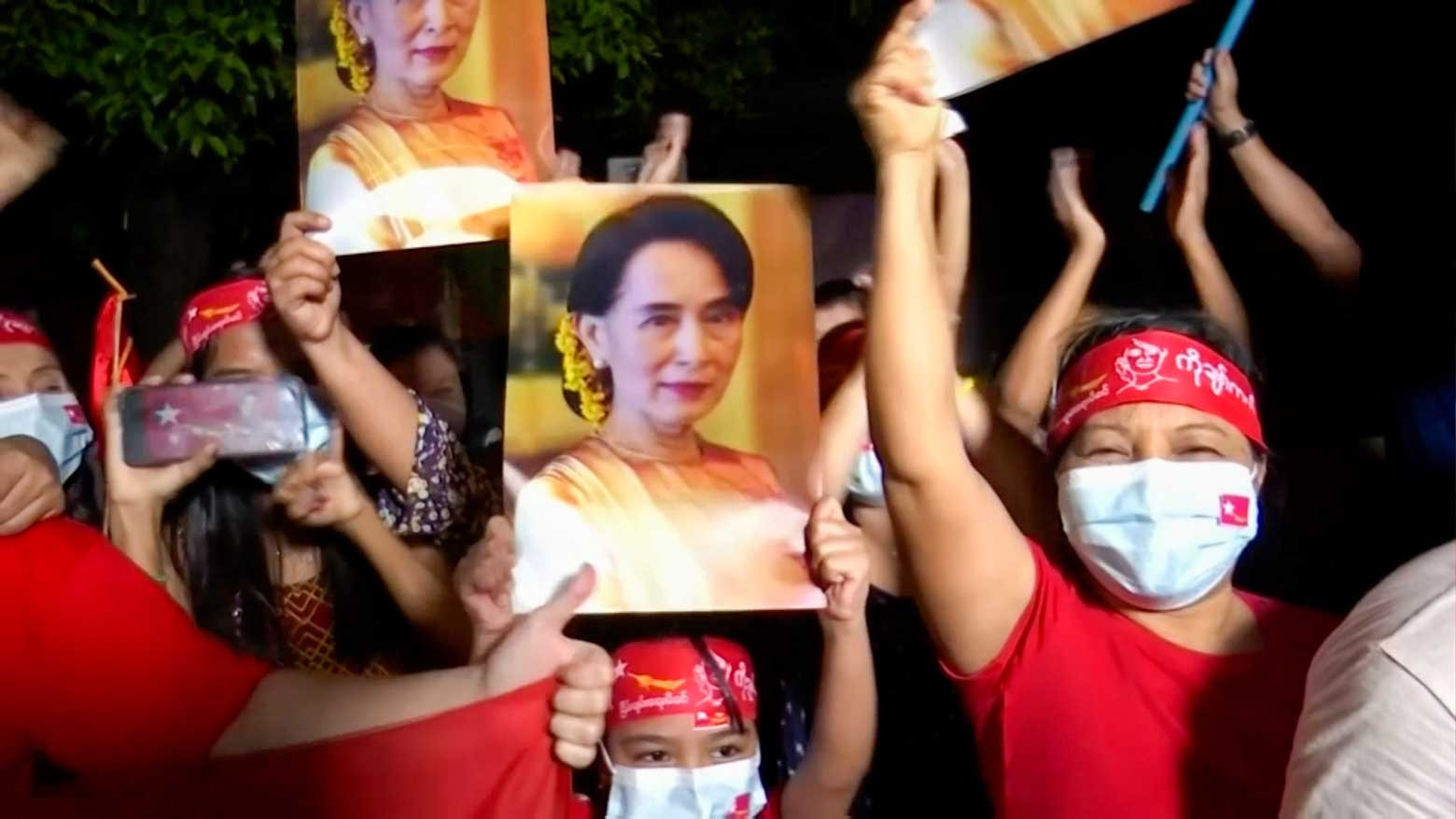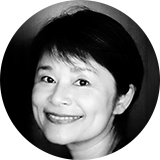"We are back to square one."
Ebara: What was your initial reaction when you heard about the coup?
Aung Zaw: I sort of knew that sooner or later it was going to happen. Of course, we didn't want it to happen since it would take our country back to the Stone Age. But when it did, I felt very sad. It was really disturbing when I woke up at 4 a.m. that morning and saw a dozen missed calls. Now we're back to square one.
Ebara: Why do you think it happened now?
Aung Zaw: I think on the military side, they were waiting for the right moment. Even before the [November] election, the military leaders were making comments and remarks at press conferences, making threats and hinting at it. One day they make a threat, creating fear, and the next day they console you, giving you a kind of relief to hear that they will respect the election outcome. But every week it was like watching a suspense drama, you were expecting the unexpected. And finally, the military said that they had no choice and were forced into the coup. Their allegations of voter fraud were ridiculous. We saw on the day of the election, the whole country was red. We saw a sea of red flags, an indication that the NLD was enjoying the majority of votes and it was a landslide victory. After this, I think the military leaders were afraid of losing not only power but also the economy and business.
In 2011 or 2012, it was the military that made the decision to open the country. But it didn't expect anyone to get in their way. Since the 2015 election, a major change has taken place because the NLD came into power. The military started to see its grip loosen. And in the 2020 election, again, the NLD won a huge mandate. The sad fact is that a joint administration, the two governments — one military, the other civilian — couldn't get along. And finally, the military decided to take power.
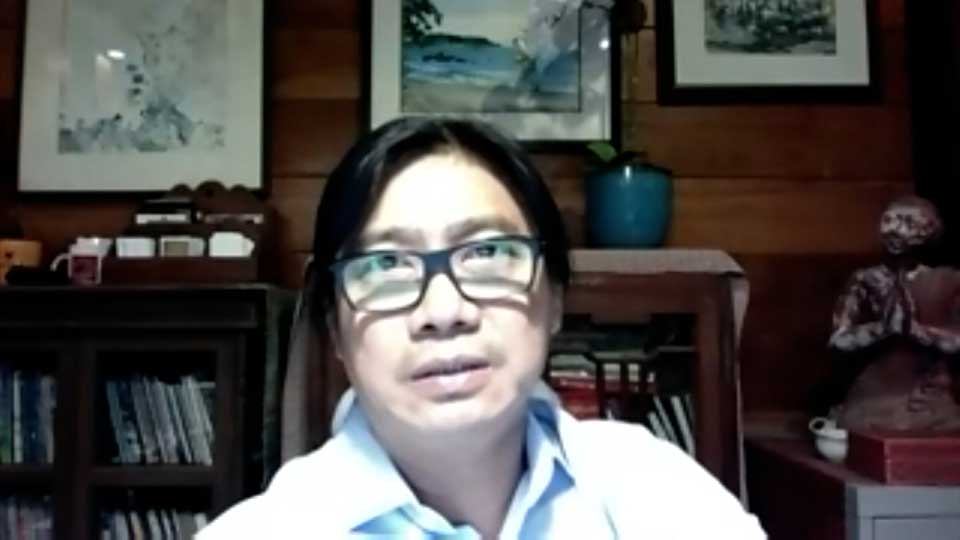
Ebara: Tell us about Myanmar's history and what Aung San Suu Kyi means to the people.
Aung Zaw: She's a beacon of hope to them. She is a huge figure, and enjoys the support of millions. It has to do with her father, who was the hero of the country's independence, General Aung San. Burma used to be seen as one of the most promising countries in Southeast Asia, with rich resources and talented people. But the military staged a coup in 1962 and again in 1988. The people have seen the country go down the drain. They have also seen repression and brutality. It's no wonder Aung San Suu Kyi is so popular.
The irony is — and I find it funny — that it's always the military which somehow plays a very important role in elevating her popularity. Recently, there's been a lot of criticism toward her, some of which is valid, some unfair, about the state of the economy, or the way she handled the peace process with ethnic minorities, and the issue in Rakhine State. But always the military came to the rescue with the way it treated her, both domestically and internationally. Now, again, she has become a godlike figure.
"Young people feel that their votes were stolen."
Ebara: Do you think the military thought a coup was the only way it could take over?
Aung Zaw: If the military thinks that this is the only way to retake power, that is not a good example to set for the young generations. Many young people who voted in November were first-time voters who were too young to vote in 2015. They rushed to support the NLD and Aung San Suu Kyi. They now feel that their votes were stolen by the military. And this is why you see so many of them boycotting and protesting against the coup.
Ebara: The last time the military staged a coup, it stayed in power for 23 years. This time, the military leaders say one year. What do you think?
Aung Zaw: You never trust their official statements. I think there is a lot the military leaders want to achieve while in power, including peace and a nationwide ceasefire with the remaining ethnic armed groups. But they also want to move forward and develop the economy. They are quite ambitious. They removed the whole structure of the NLD government and replaced cabinet members with those who are not new, most of them are from the old regime or associated with the military, or smaller ethnic parties associated with the past military government. That is an indication that this is going to be a long process. The military probably intends to stay in power for more than a year. Look at Thailand: the military staged a coup, and it's still there after five, six years. People in Myanmar don't believe their military wants to stay for just one year.
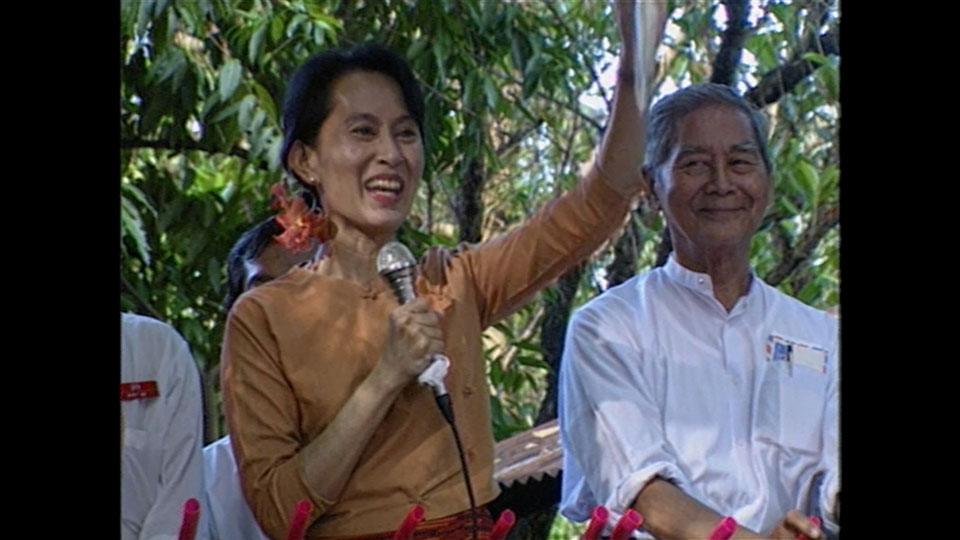
Ebara: Let's look at Myanmar's position in an international context. Western countries are expressing concern and are weighing economic sanctions. China, on the other hand, says this is a domestic political affair.
Aung Zaw: I think the coup has suddenly turned Myanmar into a playground for the west and China, with the west meaning the US. After the coup, Beijing's mouthpiece publication, The Global Times, came out with several editorials saying the event was not a coup but a major reshuffle, an adjustment in structure. I even suspect that Beijing had knowledge of the coup in advance and was ready to back the generals. China is worried about western influence in our country. Their publications talk about the rising influence of the US. If China is seeking regional hegemony, you can clearly see why they wouldn't want any kind of US proxy government being in power in Myanmar, because geographically it's too close.
"I see this as the first test for the Biden administration of its Southeast Asia policy."
Ebara: Do you think economic sanctions would help resolve the situation?
Aung Zaw: It's a good question. The coup took place barely two weeks after US President Biden was sworn in. I see this as the first test for the Biden administration of its Southeast Asia policy. We've written so much about how the new administration will shape its Indo-Pacific policy. Then two weeks in, this coup. And suddenly China steps in to dilute the seriousness of the event by saying it is just a reshuffle. I am certain there will be a confrontation of some sort between the US and China.
As for the question of sanctions, we've lived under US sanctions all these years, which were largely lifted in 2016. But during the sanction years, cronyism thrived. The military leaders were getting richer and richer. It was the people who suffered. The sanctions were not really working in the way they were meant to work. The ordinary people of Myanmar of course would like to see punishments for the coup makers, but think-tank experts and activists say they are being careful about blanket sanctions. If the US imposes sanctions alone, it will not be very effective. But if the US can coordinate with like-minded countries, that may be more effective.
It is going to be very interesting to see how the US handles the situation. China is very worried about US influence in our country. Historically, the Burmese people are very cautious, even distrustful of the Chinese and their businesses in the country. There's a resentment toward China. Now, the civil protests are not only against the military but also against China and Russia, which are seen as the key players at the U.N. Security Council that blocked any kind of resolution condemning the coup.
Ebara: But the Myanmar government has worked quite closely with Beijing and committed itself to the Belt and Road Initiative.
Aung Zaw: I think both government and military are committed to the Belt and Road initiative, but a lot of those BRI projects are still on the drawing board. There has been little implementation and Beijing is frustrated with that. Chinese leaders were quietly disappointed with Aung San Suu Kyi. I think Beijing was betting on her but then got disillusioned. Beijing doesn't care who is in power, either military or democratic government, as long as they serve Chinese interests.
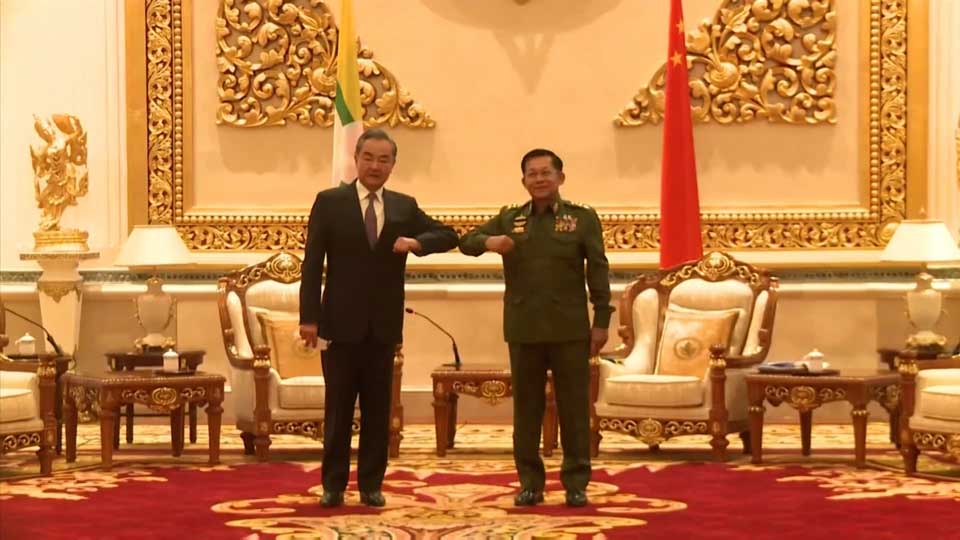
"I am very afraid violence and bloodshed may take place."
Ebara: Aung San Suu Kyi has asked people to protest peacefully. Are you worried that things may turn violent?
Aung Zaw: I am afraid it will get worse. There are two things to consider. One is, and I think even military leaders appreciate this, that Aung San Suu Kyi has never instigated violence against the military. This has worked well for her. In contrast, the military has been very brutal and oppressive toward the people. Secondly, we have seen a lot of thugs roaming around town who might incite pro-military protests. And there have already been violent attacks on the media and journalists, before and after the coup. So, yes, we should be worried about violence.
So far, people are showing their resilience. They remain very peaceful. But that is not going to last forever. The young generation, the students, are taking to the streets. I am very afraid violence and bloodshed may take place, which would justify military intervention.
